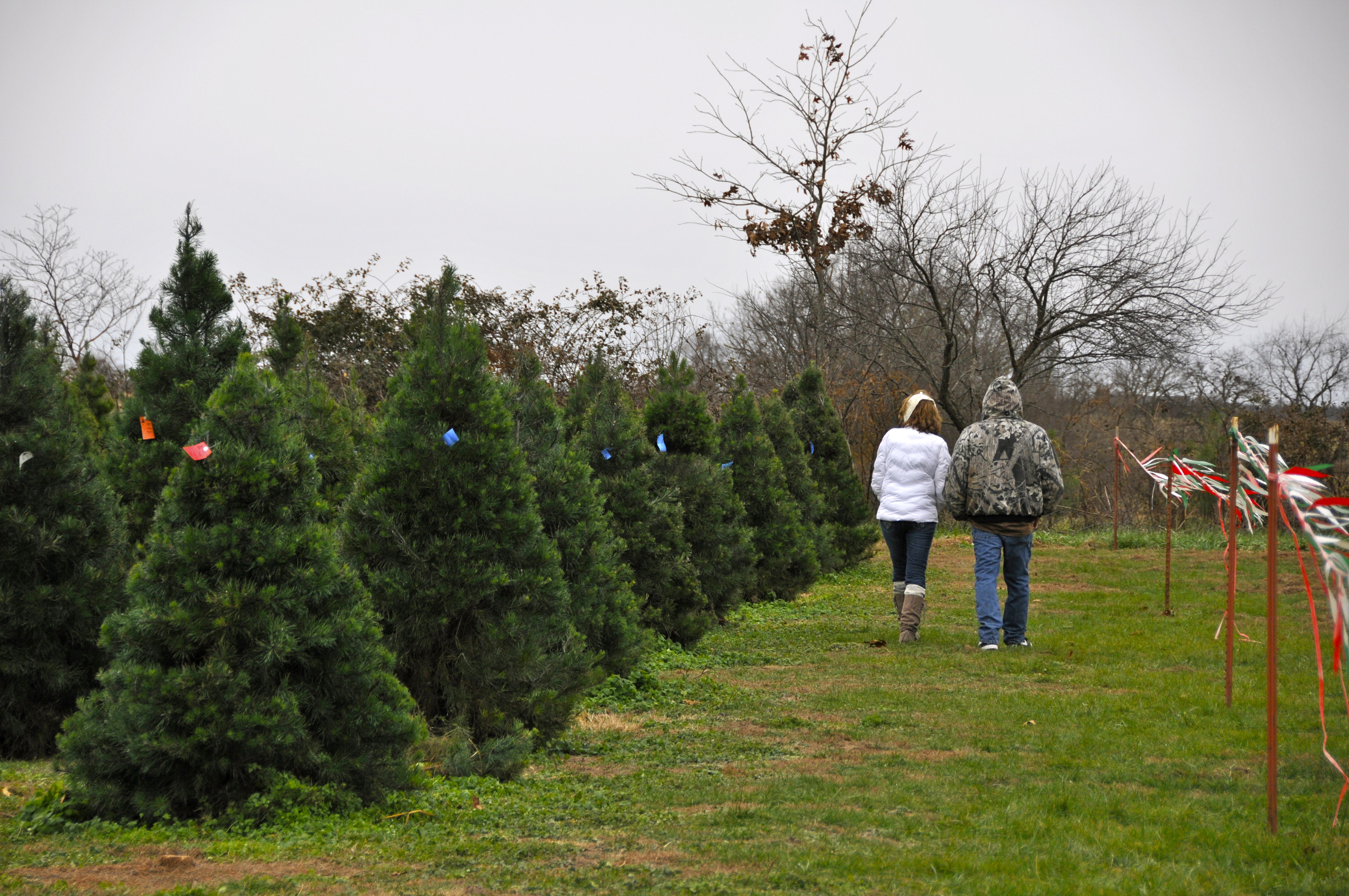Nov. 10, 2017
Christmas tree selection: How high is your ceiling?
By Seth Blomeley
For the U of A System Division of Agriculture
Fast facts
- Picking a Christmas tree? Know your ceiling height
- Cut live trees last longer than pre-cut ones
- Cedars, Leyland cypress, firs common choices
(730 words)
(newsrooms: with file art at Word version and www.flickr.com/photos/uacescomm/19099868946)
LITTLE ROCK --Whether you want a ready-cut Christmas tree sold at retail outlets or a fresh-cut Arkansas tree, know the height of your ceiling.
Plan ahead and you can easily avoid having to stuff a tree to fit in your living room.

“I always want the biggest tree I can possibly have. We’ve got scrape marks on the ceiling!” said Tamara Walkingstick, associate professor of forestry with the University of Arkansas System Division of Agriculture and an extension forester. “Know the height of your ceiling and be aware of furniture all around where you want to put the tree.”
There are plenty of options for Arkansans seeking a quality Christmas tree but no firm rule on what kind to buy.
“A lot of it depends on what people like from their personal taste,” Walkingstick said. “If someone wants to buy from a local Christmas tree provider, we still have 29 or 30 in Arkansas. A lot of Christmas tree farms will market the whole experience, like the Griswolds in Christmas Vacation, choosing a tree and cutting it yourselves.”
Farms and retail outlets often have many tree varieties, including Frazier fir, Douglas fir, Leyland cypress and eastern red cedars.
“Some people like eastern red cedars because of childhood memories of going out in the pasture and cutting a cedar,” Walkingstick said. “It smells like cedar and back in the day it was often available and free.”
Other tips for buying a tree include:
- Bring gloves. Trees can be sticky and sappy.
- Make sure the branches are sturdy enough to hold the type of decorations preferred.
- Think about the shape of tree you want to fit a particular spot.
- Avoid dry trees. They often lose their needles.
Walkingstick also recommends that Christmas tree lovers buy tree food to ensure their tree stays hydrated. It also helps to be sure the tree dealer cut an inch or two from the bottom of the trunk. This helps the tree absorb water.
Christmas tree farming isn’t a get-rich-quick business, she said. Those most successful exhibit a “special personality” and sell the whole holiday experience. Maybe they add a cornstalk maze and a pumpkin patch.
Paul Warford, of Papa Santa’s Christmas Tree Farm off U.S. 70 between Benton and Hot Springs, mostly sells Leyland cypress.
“They are a whole lot softer than those northern trees, which is what you get" at the big retail stores, Warford said.
The fresh cut trees live longer and don’t drop as many needles as ready-cut retail store trees.
“But the biggest advantage to me in going to a Christmas tree farm is the atmosphere,” Warford said. “A young couple can bring their children, and we have hot chocolate and you get to ride on a wagon.”
“There is always a question about cutting down trees for Christmas and whether that hurts the forest,” Walkingstick said. “The answer is no because Christmas trees are a crop. For every tree they cut down, farmers are going to plant four more. It’s more healthy for the environment because real Christmas trees are recycled in nature. A fake Christmas tree is made of plastic or whatever and just lasts forever in a landfill.”
For more information about forestry, visit www.uaex.uada.edu or contact your county extension office.
About the Division of Agriculture
The University of Arkansas System Division of Agriculture’s mission is to strengthen
agriculture, communities, and families by connecting trusted research to the adoption
of best practices. Through the Agricultural Experiment Station and the Cooperative
Extension Service, the Division of Agriculture conducts research and extension work
within the nation’s historic land grant education system.
The Division of Agriculture is one of 20 entities within the University of Arkansas System. It has offices in all 75 counties in Arkansas and faculty on five system campuses.
Pursuant to 7 CFR § 15.3, the University of Arkansas System Division of Agriculture offers all its Extension and Research programs and services (including employment) without regard to race, color, sex, national origin, religion, age, disability, marital or veteran status, genetic information, sexual preference, pregnancy or any other legally protected status, and is an equal opportunity institution.
# # #
Media Contact: Mary Hightower
Dir. of Communication Services
U of A System Division of Agriculture
Cooperative Extension Service
(501) 671-2126
mhightower@uada.edu
Related Links